When the school year ends, there is often a celebration of students’ year-long achievements. But when students walk out of the school’s door for summer, what happens over the next 10 weeks can be just as important. As a parent and educator, I wonder what I can do for my children to keep them academically engaged and not just staring at a screen. While there are options to fill every perceived need a child may have from day camps, sports camps, overnight camps, religious camps, and STEM camps, summer enrichment programs may be overlooked by parents. Parents often want their children to maintain academic readiness or continue to move forward. While younger students collaborate in reading and math groups, high school classes are offered to broaden one’s experience or allow focus on preparing for college testing.
 When looking at an institution to supplement academic gains, there are four items to consider:
When looking at an institution to supplement academic gains, there are four items to consider:
1. Consistency
The reason many parents choose an academic program in summertime is to avoid the ‘summer slide.’ Essentially, this idea is that, without consistent engagement, students will become rusty in math and reading. For over a hundred years, educational experts have been examining and quantifying the loss that children experience when they have an extended break from a consistent learning environment. Statistics support a continued level of engagement, especially in regards to mathematics and reading. In the Review of Educational Research, Harris Cooper reviewed 39 studies that indicated that achievement test scores decline over summer vacation. While this may affect various socio-economic groups to different extents, studies found a consistent academic program alleviated this drop.
2. Differentiated instruction
Most parents want to know that their children will be engaged, challenged appropriately, and that their needs will be met. Will your child receive individual attention or be a face in the crowd? One factor for evaluating a summer school program is the teacher-to-child ratio. Since you are concerned about your child’s progression, feedback is also important, both informally and formally.
3. Fit
Knowing what interests and motivates your child to be his or her best is also important. This could be very different for a high school student in an intensive college prep course than for a pre-kindergartener who has never been in a formal class setting. Simply getting your child to overcome the anxiety of walking into a new experience can be a struggle. Positive recommendations from teachers, administrators, and other parents can often help guide your decision.
4. Value
Affordability is often a concern when looking at a program. Figuring how many hours/days/weeks your child will be engaged against the cost of the program can be a significant concern for many parents. Other factors include before or after care options, meals, and location. Fees and extras associated with programs can add up over the summer.
Sanford School in Hockessin has promoted a summer academic program for decades. Like its regular school year programs, its focus on individualized attention allows teachers to get to know students and work with them for best results. The academic program works hand in hand with the Sanford Day Camp to present non-academic offerings.
Todd Helmecki teaches in Sanford’s Upper School History Department and was the Director of Summer School. He received his bachelor's degree in Business Administration from Bryant University and his master's degree in World History from West Chester University.








